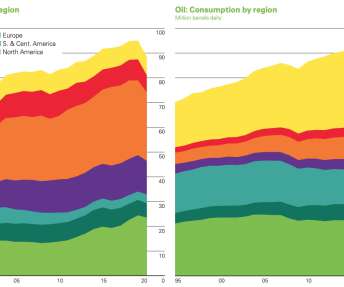bp Statistical Review shows 4.5% drop in primary energy consumption in 2020; mainly driven by oil
Green Car Congress
JULY 12, 2021
Both primary energy consumption and carbon emissions from energy use fell at their fastest rate seen since the Second World War, while renewable energy continued its trajectory of strong growth, with wind and solar power recording their largest ever annual increase. Key highlights: Primary energy consumption fell by 4.5% million b/d).














Let's personalize your content